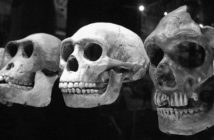The first episode in Animal People’s new weekly news vlog! In this week’s report, we review current events facing American wild horses, Norwegian wolves, donkeys in Africa, and more.
__
Transcript:
Hello, and welcome to this week’s Animal People Newsflash! I’m Wolf, like the animal, reporting for the Animal People Forum.
ANIMAL SACRIFICE FOR EID AL-ADHA
On Monday, September 12th, Muslims around the world celebrated the Eid al-Adha, or Festival of Sacrifice. Commemorating the prophet Abraham’s willingness to sacrifice his son for God, the Eid al-Adha is traditionally celebrated by slaughtering animals and sharing their meat. Cattle, sheep, and goats are among the most commonly sacrificed, the majority of whom are imported overseas from countries such as Australia and Brazil. Images from this year’s festival show animals being killed painfully in the streets, and rivers literally running red with blood.
Some Muslims, however, chose to celebrate the Eid without bloodshed. In Lucknow, India, members of the organization Muslim Rashtriya Manch instead baked and shared a cake in the shape of a goat, saying, “The Bakr-Eid festival spreads a message of humanity. It is not right to kill a goat without any reason and eat its meat.”
The Animal People Forum offers several resources relevant to the Eid sacrifice and treatment of animals in Islam, including a fatwa on animal transport and slaughter from the chief imam of Al-Azhar, and a free download of the book Animal Welfare in Islamic Law by Dr. Kristen Stilt.
WOLF MASSACRES IN NORWAY AND UNITED STATES
On Friday, the government of Norway announced a massacre of more than 2/3 of its wolf population. There are believed to be only 68 wild wolves remaining in the country, of whom up to 47 will be permitted to be shot, the largest cull in Norway in over 100 years. The government justified the planned killings as necessary to protect livestock, specifically sheep whom the wolves sometimes prey upon. Conservation groups argue that actual losses due to wolf predation have been minimal. Far more sheep die from disease, environmental, or human causes than are killed by predators, and farmers receive government compensation for their losses. Wolves are not the only carnivores under attack in Norway – in recent years, the government has also permitted hunting of wolverines, golden eagles, and bears.
A similar wolf massacre is underway in the U.S. state of Washington. State officials have been killing off members of the Profanity Peak wolf pack since early August, after several attacks on cattle grazing in their territory in the Colville National Forest. As of the state Department of Fish and Wildlife’s most recent update, six out of 11 pack members have been shot, and plans to exterminate the remaining five are still ongoing.
BUFFALO & HIPPOS KILLED IN SOUTH AFRICA
Wild animals are also under attack in South Africa, where rangers have begun killing buffalo and hippos in Kruger National Park. They plan to kill around 350 total individuals, and distribute their meat to low-income people living on the park borders. Officials say that the killings are meant to prevent larger die-offs due to a severe drought, said to be the worst in 35 years, which has placed strain on the park’s grasslands and water holes. There are 7,500 hippos and 47,000 buffalo presently living in Kruger National Park.
BLM SAYS IT WILL NOT KILL WILD HORSES
The United States’ Bureau of Land Management has stated that it has no plans to kill wild horses. The BLM’s National Wild Horse and Burro Advisory Board had previously advised the agency to sell the 46,000 wild horses it holds captive in corrals, and kill those who could not be sold. The advice met massive outcry from advocacy groups and the general public. Speaking to a congressional panel on Thursday, BLM Management Director Neil Kornze said the agency was committed to finding other alternatives to reduce the wild horse population, such as fertility control drugs and increased adoptions. The BLM also announced recently that it would cancel controversial experiments to test surgical sterilization methods on wild mares.
The past week saw several other legal developments in the United States:
NEW ANTI-CRUELTY LAW IN OHIO
Ohio’s new anti-cruelty law went into effect Tuesday. Named Goddard’s Law after activist Dick Goddard, it increases the charge for knowingly harming a companion animal from a first-degree misdemeanor to a fifth-degree felony, and imposes mandatory prison time for anyone who assaults a police or service animal.
USDA BILL TO END HORSE SORING
The U.S. Department of Agriculture has introduced a new bill to help end the practice of horse soring, in which show horses have weights or painful objects or substances applied to their front hooves, forcing them to walk with a higher step. If passed, the bill would ban soring devices and substances and end self-policing by industry insiders. The USDA will accept public comments at this link until September 26th.
RESOLUTION AGAINST DOG MEAT IN CHINA
On Wednesday, Congressman Hastings of Florida chaired a briefing on House Resolution 752, which calls on Chinese authorities to shut down the infamous Yulin Dog Meat Festival and ban the dog meat trade. The Resolution is co-sponsored by 114 congresspeople of both major parties. Peter Li, Humane Society International’s China Policy Specialist, who presented at the briefing, commented afterward that “Resolution 752 is not a war of culture against China. The Chinese were the first to stand up against the Yulin Dog Meat Festival. … The bond between companion animals and humans is NOT Western, but trans-cultural.”
WILDLIFE BILL PASSES U.S. SENATE
On Thursday, a new anti-wildlife trafficking bill passed the U.S. senate by a unanimous vote. Once signed into law, it will direct U.S. agencies to work with countries affected by wildlife crime, support ongoing anti-trafficking efforts, and aid prosecutors in punishing poaching and illegal trophy hunting.
MARINE NATIONAL MONUMENT IN ATLANTIC
Also on Thursday, President Obama declared the U.S.’s first marine national monument in the Atlantic Ocean. Commercial fishing and seabed mining will be banned within an area of nearly 5,000 square miles off the New England coastline, with a seven-year phase out period. Fishing industry representatives decried Obama’s declaration, but scientists and environmental activists praised the creation of the monument, whose waters are home to many vulnerable species of fish, squid, crustacean, coral, seabirds, turtles, and marine mammals.
PUBLIC LAUNCH OF GLOBAL FISHING WATCH
In related news, Oceana, SkyTruth, and Google have announced the public beta launch of Global Fishing Watch, a new online tool which tracks commercial fishing activities worldwide. Designed to empower governments and the general public to identify evidence of illegal fishing or overfishing, Global Fishing Watch also offers animal activists and conservationists a powerful tool in protecting marine animals and their habitats from destruction.
BURKINA FASO & NIGER BAN DONKEY EXPORTS
Several African countries are cracking down on exports of donkeys to China. In February, Botswana arrested four people involved in smuggling donkey hides. Last month, Burkina Faso banned the export of donkey skins, with Niger most recently following suit. Donkey meat is a delicacy in some regions of China, and gelatin made from donkey skin is believed to offer medicinal properties. However, China’s own donkey population has fallen as rural communities replace working animals with machines, requiring imports from abroad to meet the demand. In April, Africa’s first licensed donkey slaughterhouse was opened in Kenya, and South Africa is reportedly considering plans to train farmers in breeding donkeys for Chinese consumption.
In banning donkey export, Burkina Faso and Niger do not appear to be motivated by animal welfare concerns. Rather, the demand for exports threatens to deplete the countries’ donkey populations, while spikes in the animals’ cost makes them unaffordable to locals who use them for food and transportation.
UNIVERSITY DEFENDS GREYHOUND RESEARCH
Animal researchers are pushing back against criticism from animal activists. In Australia, Monash University defended a study in which suffocated greyhounds had their hearts removed, reinserted, and were then revived before finally being euthanized. The University maintains that the greyhounds were anesthetized throughout, and that the findings were important for improving life-saving organ transplants on human patients. The dogs are believed to have come from the racing industry, lab research being a common fate for former and surplus racing hounds. Dog racing was recently banned in New South Wales, but remains legal in Monash University’s state of Victoria.
SCIENTISTS DEBATE PRIMATE RESEARCH
In a letter published in The Guardian on Tuesday, scientists stated that experiments on primates are crucial to medical advances in treating neurological diseases such as Parkinson’s. More than 400 scientists, including two Nobel laureates, signed the letter. Their statement comes in response to a research paper by Cruelty Free International, and a letter in The Independent signed by Jane Goodall and Sir David Attenborough, arguing that brain research on primates was no longer scientifically necessary. Research on great apes has been banned in the UK for decades, but macaques, marmosets, and other monkeys are still permitted for experimental use.
PRIZE FOR ANIMAL RESEARCH REPLACEMENTS
Whether experiments on animals remain scientifically valuable or not, the Beagle Freedom Project seeks to hasten the end of animal research through its Beagle Freedom Prize. Currently accepting applications on its website, the project will award five grants of $50,000 each to scientists and research teams developing innovative replacements for dogs and other animals in their research. The deadline to apply is October 1st, 2016.
MORE AT WWW.ANIMALPEOPLEFORUM.ORG
This newsflash covers just a few of the countless issues facing animals worldwide. More information can be found on the Animal People Forum, our online magazine and social networking site for people who care about animals. Anyone is welcome to contribute, so if you would like to share your knowledge, express your views, or raise awareness of any animal protection issue, sign up at www.animalpeopleforum.org Together we can help create a kinder world for all living creatures!
__
Media Credits
Ram awaiting sacrifice: TheAnimalDay.org, used under CC BY 2.0
Cow trussed in Pakistan: Khalid Mahmood Qureshi / Animal People, Inc.
Capsized ship carrying cattle from Brazil: Elcimar Freitas, fair use
Cow slaughtered in Alexandria, Egypt: Best Video You Will Ever See, fair use
Blood river in Dhaka, Bangladesh: Amir Hossain, fair use
Goat close-up: Kim Bartlett – Animal People, Inc.
Norwegian wolf: Dag Halvorsen, used under CC BY-NC-ND 2.0
Norwegian sheep: dration, used under CC BY-NC-ND 2.0
Wolverine: Kim Bartlett – Animal People, Inc.
Wolf in Washington state: U.S. Fish and Wildlife Service, used under CC BY 2.0
Hippopotamus in Kruger National Park: Chris Eason, used under CC BY 2.0
Buffalo in Kruger National Park: Hakon Stillingen, used under CC BY-NC 2.0
Wild horses, black and white: Bureau of Land Management / Animal People, Inc.
Wild horses captured in corral: Bureau of Land Management Nevada, used under CC BY 2.0
Black pet dogs (Melantha and Bela): Kim Bartlett – Animal People, Inc.
Weights attached to horse’s hooves: United States Department of Agriculture, public domain
Gaited horse struggling to stand: Humane Society of the United States, fair use
Dogs awaiting slaughter in China: Animals Asia, used under CC BY-NC 2.0
Photos of briefing on Resolution 752 courtesy Peter Li
Baby monkey for sale in Indonesian wildlife market: Wolf Clifton – Animal People, Inc.
Sea turtle: Vince Smith, used under CC BY 2.0
Map showing Atlantic marine monument: The Washington Post, fair use
Lobster: Geir Friestad, used under CC BY-NC-ND 2.0
Global Fishing Watch screenshots courtesy Oceana
Donkey at Kenya SPCA: Kim Bartlett – Animal People, Inc.
Packaged donkey meat in China: Lee Kottner, used under CC BY-NC-ND 2.0
Donkey pulling cart in Burkina Faso: CIFOR, used under CC BY-NC 2.0
Rescued greyhounds: Kim Bartlett – Animal People, Inc.
Greyhound racing: Eoin Gardiner, used under CC BY 2.0
Macaque used in experiment at University of Wisconsin-Madison: anonymous
Beagle caged at veterinary school in Europe: Jo-Anne McArthur / We Animals






1 Comment
This is a great idea, and a great way to stay updated on the latest humane news.